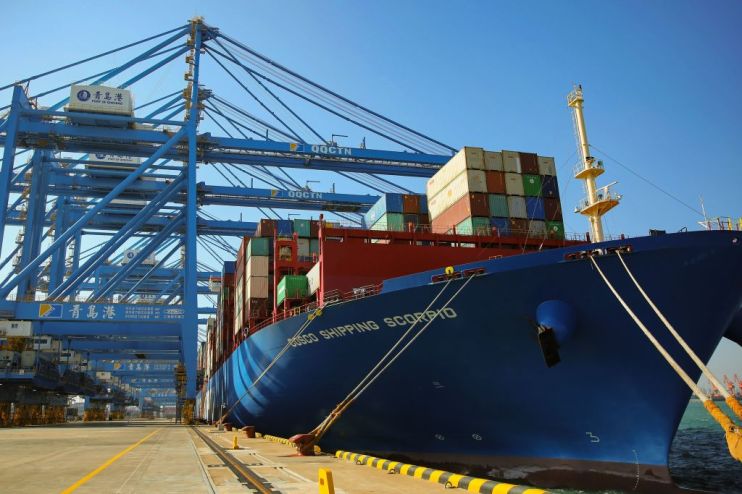Chinese exports unexpectedly drop as trade war takes a toll

China’s exports suffered a shock fall in November and contracted for the fourth month in a row, official data showed today, as the world’s second-largest economy struggled to cope with the US trade war.
Yet imports fared better than expected, suggesting Beijing’s programme of domestic stimulus could yet boost the slowing economy.
Read more: US jobs data beats expectations despite trade war concerns
Exports fell 1.1 per cent in November year on year, a far worse figure than the one per cent expansion economists had predicted. Exports fell by 0.9 per cent in October.
Falling exports narrowed China’s trade surplus, which stood at $39bn in November. This compared with predictions of a $46bn surplus and October’s $43bn surplus.
China’s falling exports highlighted the toll its trade with the US is taking on the country. The two sides are currently negotiating a so-called phase one trade deal, but there is still much uncertainty about its progress.
On Thursday, US President Donald Trump said trade talks are “moving right along”. Yet only days earlier he rattled investors by saying that a trade deal may have to wait until after the 2020 US presidential election.
Chinese growth fell to six per cent in the third quarter, its lowest figure in at least 27 years. Beijing has responded to the slowdown by injecting stimulus into the economy, for example by lowering a number of borrowing rates.
The country’s imports unexpectedly rose 0.3 per cent in November, the data showed today, compared to predictions from economists of a 1.8 per cent fall. The better-than-expected imports suggest stimulus measures are boosting domestic demand.
Mark Haefele, chief investment officer at UBS Global Wealth Management, said investors should not bank on a resolution to the US-China trade war.
Read more: FTSE 100 slumps as Donald Trump suggests China trade deal could come after 2020 US election
He said: “In the year ahead we advocate reasserting some control over your portfolio by choosing investments less dependent on the outcomes from political choices.”
For example, he recommended choosing “domestic over global” and picking “consumer over business spending”.